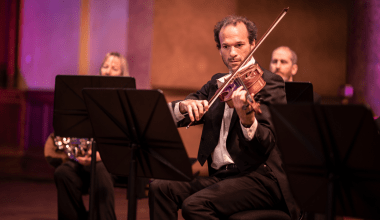A culture club is a gathering of individuals who come together to celebrate and explore the rich diversity of cultures. It is a space where people share traditions, learn new perspectives, and build connections that transcend boundaries. The idea of a culture club is rooted in curiosity and the joy of learning about others while sharing your own story.
Imagine stepping into a room filled with music, art, stories, and laughter from around the world. That’s the magic of a culture club. It’s not just about learning facts; it’s about experiencing the heart and soul of different ways of life. Whether it’s through food, dance, or conversation, a culture club is a celebration of human connection.
Why Culture Clubs Matter
In today’s fast-paced world, it’s easy to get lost in our routines. A culture club provides a refreshing escape. It reminds us of the beauty in diversity and the strength of community. When we come together to share and learn, we break down stereotypes and build empathy. These clubs are especially important in fostering understanding in multicultural societies.
For example, you might attend a culture club meeting and discover the stories behind traditional African dances or learn how Japanese tea ceremonies are steeped in mindfulness. These experiences enrich your perspective and inspire you to see the world differently. The focus is on connection and celebration, not comparison or judgment.
One of the best things about being part of a culture club is the shared experiences. Imagine cooking a meal together from a different cuisine, learning a folk dance, or even exploring a new language. These activities don’t just teach you something new; they also create lasting memories.
For instance, a culture club could host a potluck where everyone brings a dish from their culture. It’s more than just food on a table; it’s stories, family traditions, and a sense of pride served alongside each dish. You’ll leave with a full stomach and a fuller heart.
Building Bridges Through Culture
Culture clubs are a powerful way to build bridges between communities. When people come together to celebrate their heritage and learn about others, they create a sense of belonging. This sense of belonging is essential for personal and societal well-being.
Think about it: when you understand someone’s culture, you’re more likely to respect them. Respect leads to collaboration, and collaboration leads to a stronger, more inclusive society. Culture clubs act as a starting point for these positive changes.
How to Start Your Own Culture Club
Starting a culture club might seem daunting, but it’s easier than you think. All you need is a passion for learning and sharing. Begin by inviting friends, colleagues, or neighbors who share your interest in cultural exchange. Decide on a format—will you meet weekly, monthly, or only for special events?
Next, plan your activities. Focus on inclusivity and variety. You could host movie nights featuring films from different countries, organize storytelling sessions, or even invite guest speakers to share their expertise. Remember to make everyone feel welcome, regardless of their background.
Promote your culture club through social media and community boards. The more people you reach, the richer your club’s experiences will be. And don’t forget to encourage members to bring their unique ideas and traditions to the table.
The Role of Art in Culture Clubs
Art is a universal language, and it plays a significant role in culture clubs. Whether it’s visual art, music, dance, or literature, creative expressions are a window into a culture’s soul. Art can evoke emotions, spark conversations, and inspire connections.
For example, you might explore traditional art forms like Indian rangoli or Aboriginal dot painting during a culture club session. These activities allow members to immerse themselves in the creative process while learning about the cultural significance behind the art.
Music is another fantastic way to connect. A simple activity like sharing your favorite songs from your culture can lead to hours of meaningful discussion and discovery. You’ll find that music has a unique ability to bring people together.
Food: The Heart of Cultural Exchange
Food is often the highlight of culture club meetings. There’s something magical about sharing a meal and the stories that come with it. Every dish has a history, and every bite tells a story.
In a culture club, food can be a gateway to understanding. For example, you might try making Italian pasta from scratch or savor the bold flavors of Thai curry. Through these culinary adventures, you not only learn recipes but also the traditions and values that make them special.
Even simple dishes can spark curiosity and connection. A member might bring a childhood favorite and explain its significance during family gatherings. These moments create a sense of intimacy and trust within the group.
Embracing Diversity
Culture clubs thrive on diversity. They celebrate the differences that make each culture unique while highlighting the common threads that unite us. This balance is crucial for fostering mutual respect and appreciation.
When you participate in a culture club, you’re constantly learning. You’ll hear stories that challenge your assumptions and meet people whose experiences are vastly different from your own. This exposure broadens your horizons and helps you grow as an individual.
Diversity also encourages creativity. When people from different backgrounds collaborate, they bring unique perspectives and ideas to the table. This synergy often leads to innovative solutions and meaningful projects.
The Impact of Culture Clubs on Youth
For young people, culture clubs can be life-changing. They offer a safe space to explore identities, develop social skills, and build confidence. By engaging with different cultures, youth learn the importance of empathy and teamwork.
For instance, a school-based culture club might host events like “World Culture Day,” where students showcase their heritage through performances and exhibits. These events foster a sense of pride and belonging while teaching valuable lessons about acceptance.
Culture clubs also provide opportunities for leadership. Organizing events, managing teams, and collaborating with peers help young members develop skills that will benefit them throughout their lives.
Keeping the Spirit Alive
The success of a culture club depends on the enthusiasm and commitment of its members. To keep the spirit alive, it’s important to stay curious and open-minded. Regularly introduce new activities and themes to keep everyone engaged. Celebrate milestones and acknowledge the contributions of each member.
It’s also crucial to create a supportive environment where everyone feels valued. Encourage feedback and adapt based on the group’s interests and needs. Remember, the goal is to create a space where people feel inspired to learn, share, and connect.
Join the Movement
Culture clubs are more than just gatherings; they’re movements that bring people closer together. By joining or starting a culture club, you’re contributing to a world that values diversity and fosters understanding. It’s a simple yet powerful way to make a difference.
So why wait? Take the first step today. Whether you’re attending your first meeting or planning your own culture club, remember that every effort counts. Together, we can build a community where everyone feels seen, heard, and celebrated.
Related Articles:
For further reading, explore these related articles:
- The Ultimate Guide to “Oh My God” Lyrics: Unveiling the Magic Behind the Words
- Sarah Connor: The Ultimate Hero Who Taught Us Courage
For additional resources on music marketing and distribution, visit DMT RECORDS PRIVATE LIMITED.






